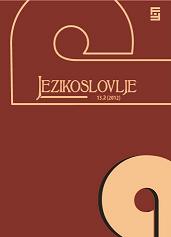Is Dutch dying out?
Is Dutch dying out?
Author(s): Željana Pancirov CornelisseSubject(s): Language and Literature Studies
Published by: Filozofski fakultet, Sveučilište Josipa Jurja Strossmayera, Osijek
Keywords: Dutch; language disappearance; globalization; multicultural society; national identity
Summary/Abstract: The Dutch language is a mother tongue for 23 million people. It is the 8th lan-guage in the European Union and it is being taught at 190 universities around the world. On the Internet it takes up an important role as one of the most frequently used languages. Therefore, why should one be afraid that Dutch is dying out? The biggest concern is that English is going to take over the global communica-tion as a “lingua franca”. In the past English loaned words from Dutch. Today the situation is the other way round. Dutch people are very modest when talking about their language and culture and they accept the multicultural society as an integral part of their everyday life. Being multiculturally-minded, they are building up a multilingual society as well, but sometimes they forget about the importance of their own mother tongue. How is the Dutch language treated by its native speakers and how strong is the preference (especially) for the English language within various segments of the Dutch society? Modern technology is developing very fast, making an increasingly significant impact on languages. Due to historical circumstances, Dutch has influenced other languages throughout many centuries, leaving its traces in other cultures. The Netherlands plays an important role in the European Union and is one of its founding members. In order to maintain good international contacts, using the knowledge of Dutch and other foreign languages is of high importance for the de-velopment of business and a successful economy. The crucial question regarding the mentioned contacts is whether national identity pride (the use of the Dutch language) or the tendency towards simple, more effective communication in English will eventually prevail. This begs the question what kind of future the Dutch language is facing within the European Union.
Journal: Jezikoslovlje
- Issue Year: XIII/2012
- Issue No: 2
- Page Range: 479-491
- Page Count: 13
- Language: English

